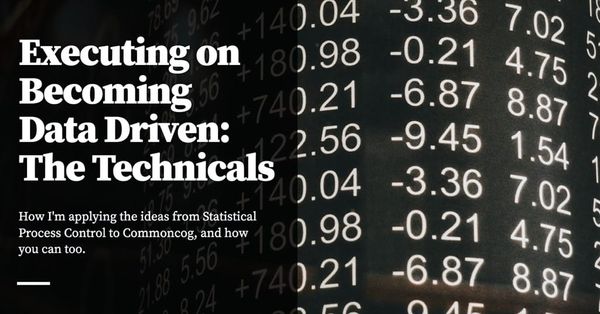A technical overview of how I'm applying the methods and ideas of the Becoming Data Driven in Business series.
Note: this is Part 8 in a series of blog posts about becoming data driven in business. You may want to read the prior parts before reading this essay.
Let’s do a quick recap. At this point in the series, we’ve discussed how the purpose of data is ‘knowledge’, which is defined as ‘theories or models that help you make better predictions about the business outcomes of your actions.’
We’ve also discussed how this is fancy way of saying that ‘the purpose of becoming data driven is to build a causal model of the business in your head.’ The purpose of doing all this work is that you want to understand how your business actually works and grows, not rely on superstitious beliefs about how your business works and grows.
So how do you do that? Readers who have been following along for a bit know that I’m putting the entire series to the test right now. In the previous instalment, I talked about how the really difficult bit with this are the political bits. But let’s talk about the technical bits this week: how do you begin?
The answer: you start with the causal model of the business you currently have in your head.
Everyone Has a Causal Model of Their Business In Their Heads
The truth is that everyone has a causal model of their business in their heads. Sure, the model might be wrong. Parts of it may be superstition. But it’s worth starting with that model anyway — if nothing else, it forces your team to check that they all share the same model of the business.
Originally published , last updated .
This article is part of the Operations topic cluster, which belongs to the Business Expertise Triad. Read more from this topic here→





